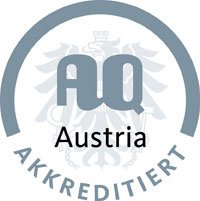 Sigmund Freud Private University (SFU) is a private university accredited under Austrian law since 2005 with branches in Vienna, Linz, Paris, Berlin, Milan and Ljubljana.
Sigmund Freud Private University (SFU) is a private university accredited under Austrian law since 2005 with branches in Vienna, Linz, Paris, Berlin, Milan and Ljubljana.
The founding idea of the SFU: Establishing the science of psychotherapy
The founding fathers and mothers, Prof. Dr. Alfred Pritz, Univ. Prof. Dr. Jutta Fiegl, Heinz Laubreuter and Dr. Elisabeth Vykoukal, decided to found Sigmund Freud Private University (SFU) in 2003 with the ambition of transforming psychotherapy into psychotherapy science, to place it structurally on a scientific basis, following Sigmund Freud’s fantasy in 1926 in “On the Question of Lay Analysis” – that psychoanalysis would one day be taught as a subject in its own right … This was followed in 2007 by founding the Faculty of Psychology under Dean Univ. Prof. Dr. Gerhard Benetka, in 2015 the Faculty of Medicine and in 2016 the Faculty of Law at SFU Vienna.
European orientation
Driven by the ideas of the founding fathers, it became clear that the SFU vision required a European orientation, which led to the establishment of the branches at the above-mentioned locations. Ass.-Prof. Dr. Katharina Reboly, formerly a student “of the first hour” at SFU Vienna, became involved with the SFU branch in Berlin from 2008 onwards in the sense of establishing and expanding the European humanities focal university in Germany.
The SFU Berlin at Campus Tempelhof
SFU Berlin started teaching and research operations of the Bachelor’s programme in Psychology at the site of the historic airport in Berlin-Tempelhof with accreditation in 2013. This was followed in 2015 by Psychotherapy Science and the university course Art Therapy, in 2016 by the MA university course Cultural Relations and Migration, and in 2017 by the founding of the Institute for Media and Digital Journalism at the Department of Psychology.
In the teaching and research of its degree programmes, university courses and further and continuing education programmes, SFU Berlin is committed to providing a broad spectrum of approaches in the theory and practice of science in order to create a breeding ground for scientific and professional debate. Thus, the various methods and theories are taught equally based on empirical and hermeneutic foundations as well as competences for action; for example, in the study of psychotherapy science, the various scientifically recognised psychotherapeutic procedures are taught. The breadth is taught within the framework of the Bachelor’s degree programmes; specialisations can be marked within the framework of the Master’s programmes. All study programmes are based on the three-pillar model: theory, practice and personal development.
Professional identity, academic discourse and personal maturity
The main concern for our students and teaching, in relation to the entire study programme, is the development of an individual professional identity, the establishment of a critical attitude in academic discourse and personal maturity. Therefore, no numerus clausus counts as an admission criterion, but personal suitability for the respective field of study. The opportunities of our still young university are an innovative education, student-centred teaching, the search for and occupation of promising research niches and to be an intellectual home for students hungry for experience, in which they can grow.